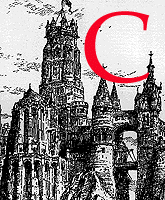
onservative critics, such as those of Blackwood's and the Art-Journal, found changes in the nature of patronage particularly disturbing. Rather than recognizing Victorian opportunities for a new art, they saw only the democratic destruction of what they took to be aristocratic culture. To begin with, the very practice of exhibiting one's paintings to attract patronage was dangerous, for as Frederic Harrison explained in "A Few Words about Picture Exhibitions" (1888), "An Exhibition is necessarily more or less a competition, and a competition where for the most part the conspicuous alone catches the public eye. Il faut sauter aux yeux, and that in the eyes of the silly, the careless, the vulgar, in order to be popular" (Nineteenth Century, 24 (1888), 32). Harrison also points out that exhibitions prevent the spectator from seeing paintings in their proper setting, and he turns to the French salons, with their scenes of rape and murder, for examples of the end to which the need for exhibitionistic sensationalism brings the artist:
What shall we say to a 'Rape in the Stone Age,' No. 1355, by Jamin? Here a sort of naked Polyphemus has seized and is carrying off a nude, very white studio model, who is posed as the female of the Stone Age. In her fury this elegant nymph has rammed her thumb into Polyphemus's right eye, which she is just gouging out. Polyphemus, howling with pain clutches the graceful girl in his huge fist, and is just crushing in her ribs, she yelling in agony To them comes Polyphemus No. 2, a sort of Porte St. Martin torturer; who, seizing his rival behind, is garotting him by strangling him round the throat. Conceive the man who shall purchase this work or art, and sit down to dinner daily in the presence of the last yell. (39-40)
The need thus to command public attention, according to J. B. Atkinson in Blackwood's, made "the arts pander to sensation, and like popular politics, obtain applause by realising through low expedients the greatest happiness of the greatest number" ("Decline of Art: Royal Academy and Grosvenor Gallery" 138 [1885]. He adds that the Royal Academy, by increasing its "exhibition space . . . is acting the part of certain politicians who lower the franchise, let in the flood of democracy, and with the consequent multiplication of constituents, open additional voting booths" (p. 5).
Furthermore, as Atkinson observed in the 1862 Blackwood's , changes in patronage necessarily produced important changes in the kinds of work artists painted, for now "small cabinet pictures of homely subjects" (92 (1862): 360) had become the general rule, while commissions for monumental art, history painting, and what the critics took to be other aristocratic forms became increasingly rare — so rare, in fact, that when Parliament decided [127/128] to decorate the new House, it had difficulty in finding men who could properly execute these commissions. As Atkinson complained,
Art, in common with other products of genius, has had to descend from her high pedestal, and become popular in sympathy and secular in spirit. Thus the people, both for evil and for good, have, throughout Europe, grown into a power, and pictures, accordingly, are made to pander to the wants of a dominant democracy. Painters paint down to the level of the multitude.
Again in his 1865 Blackwood's review of "The London Art-Season," Atkinson lamented that "in these days too little of ideal beauty, too little of scholarly culture, too little of gentlemanly refinement" can survive (98 [1865: 336). For almost three decades one can observe Atkinson of Blackwood's, who is typical of many conservative critics, express his dismay at the effect of democracy upon the arts. It was not only the prevalence of homely portraiture and domestic scenes which troubled him, but also the fact that realistic styles, including the Pre-Raphaelite, had triumphed. "Imagination," he complained in "The Royal Academy and Other Exhibitions," "has wellnigh been driven away from her favourite haunts, and . . . the domain of art is now delivered over to the dominion of the senses" (Blackwood's 102 [1867]: 80).
30 April 2024